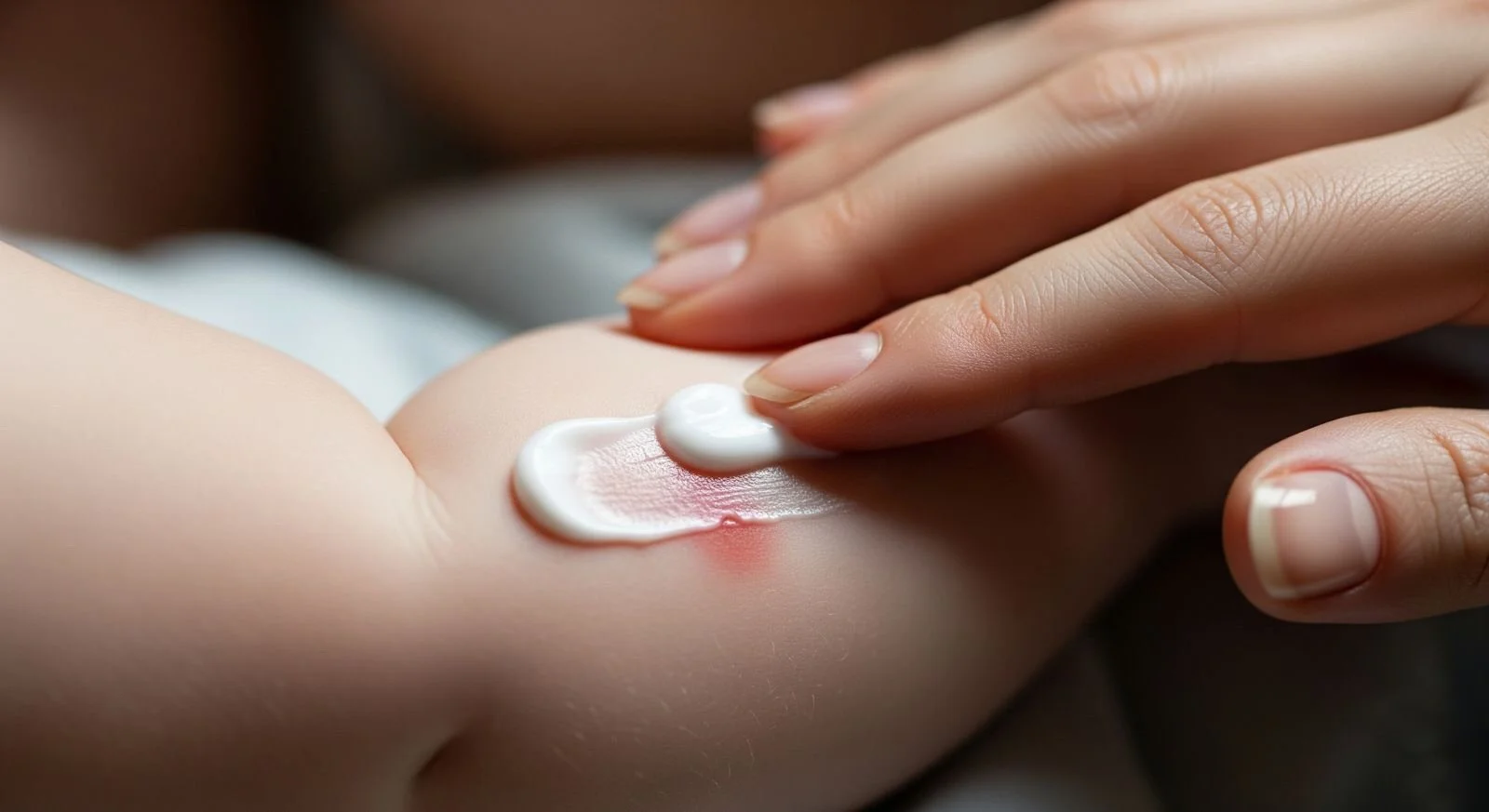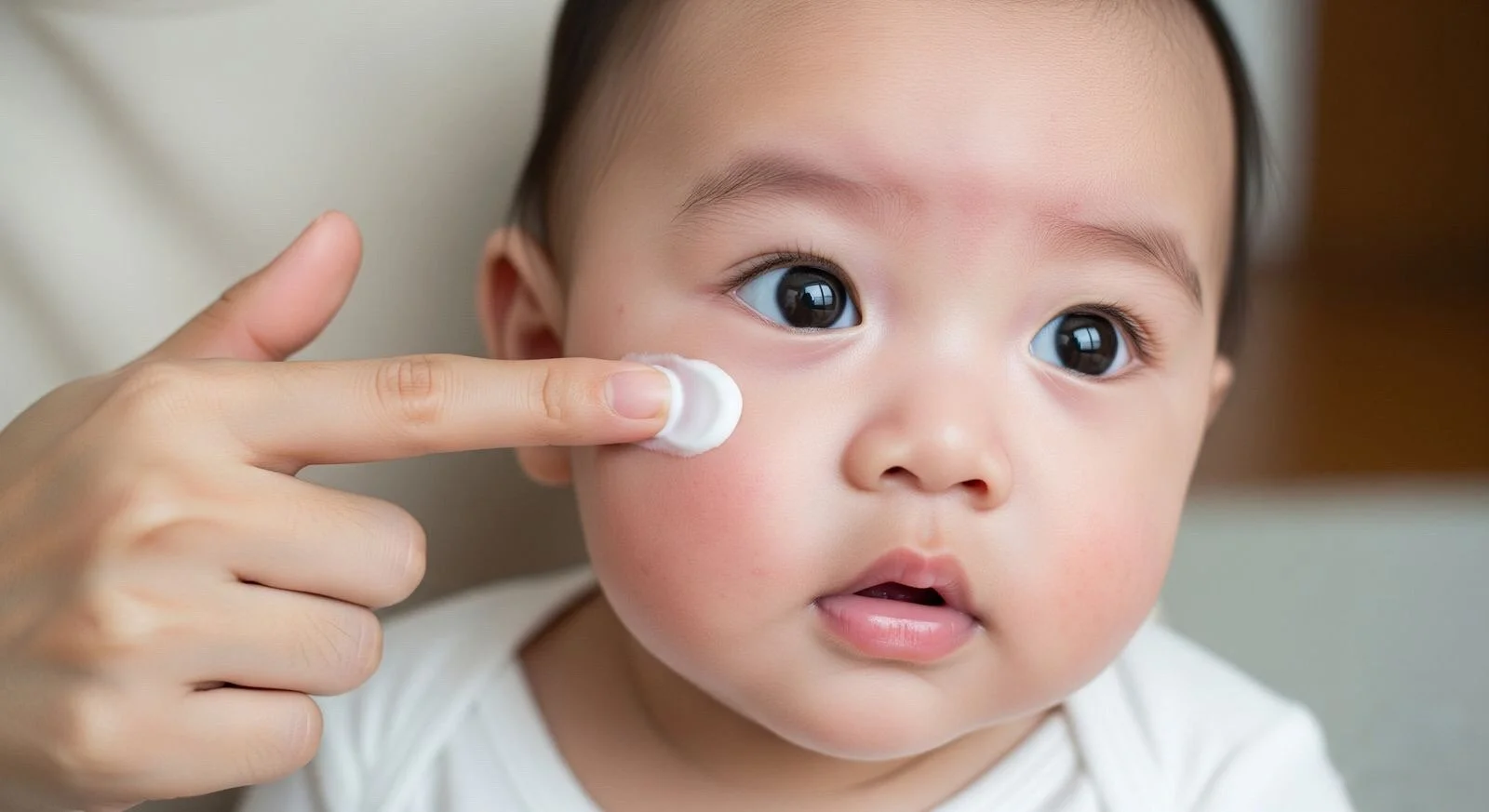(EN) Sensitive Skin in Babies? Understand the causes, recognize the characteristics, and how to treat it properly!
A baby's skin is soft and delicate, but parents are often faced with the challenge of baby's skin being more sensitive than adult skin. Many parents are worried when they see the appearance of rashes, redness, or dry patches on their little one's skin. This condition can make your little one feel uncomfortable and of course make parents worry.
Don't panic mom! With the right understanding, you can take care of your baby's sensitive skin to keep it healthy and comfortable. This article will help you recognize the causes of sensitive skin, its characteristics, and how to properly care for sensitive baby skin.
Why is baby's skin so vulnerable and sensitive?
Baby's skin is much thinner than adult skin, baby's skin has a protective layer(skin barrier) that is not perfect because it is still thin and easily loses moisture. In addition, the baby's skin immune system is also still learning to recognize foreign substances from the surrounding environment, making it more susceptible to irritation from outside.
Some of the main factors that cause sensitive skin in babies include:
Immatureskin barrier
The baby's skin barrier is not fully developed. As a result, water evaporates more easily from the skin (causing dryness) and foreign substances/irritants enter more easily.Minimal natural oil production
The oil glands (sebaceous) on baby's skin are not yet working optimally so the skin tends to be drier and easily loses the natural moisture of baby's skin.Immature immune system
A baby's immune system, including the skin, is still developing.
This makes the baby's skin more reactive to allergens or irritants.
Exposure to the external environment
Extreme weather changes (too hot or too cold)
Use of products with harsh ingredients, such as synthetic fragrance, alcohol, or parabens
Friction from diapers or rough clothing
Allergies to food, formula, or environmental materials such as dust
Certain skin conditions, such as eczema or atopic dermatitis
Genetic factors
If Dad or Mom has a history of allergies, asthma, or eczema, chances are your little one also has more sensitive skin.
Characteristics of Sensitive Baby Skin that Parents Need to Watch Out for
How do you know if your baby's skin is sensitive? Recognize the characteristics that need to be considered as follows:
Skin redness or rash
Red patches, spots, or rashes (such as severe diaper rash, milk rash, or rashes in skin folds) appear.
Dry or rough skin around the cheeks, arms or legs
The skin feels rough to the touch, appears cracked, or looks scaly,
especially on the cheeks, hands and feet.
Baby looks uncomfortable, scratching or fussing a lot
The baby appears to be scratching a lot (although they may not be able to scratch effectively yet, they may rub themselves), look uncomfortable, or fuss more because of the itching sensation.
Small spots appear after using certain products
Skin reacts immediately (redness, itching), sometimes small bumps appear
after using certain soaps, shampoos, lotions, or even diaper brands.
Skin Thickening (in chronic cases)
If the irritation persists, the skin may appear thicker or crusted in areas that are often
irritated.
Notes: If symptoms persist or worsen, you should consult a doctor.
Tips for Taking Proper Care of Sensitive Baby Skin!
Caring for sensitive baby skin requires patience and attention. Check out these tips to keep your little one's skin healthy and comfortable:
1. Choose the right skincare products
This point is key! Always choose products that are specially formulated for sensitive baby skin. Look for products with labels:
Hypoallergenic: Minimizes the risk of allergic reactions.
Dermatology Tested: Tested for use on skin, including sensitive skin.
pH Balanced: Maintains the skin's natural pH balance.
Fragrance-Free: Free of artificial fragrances that are often a trigger for irritation.
Colorless-Free: Free of colorants that can irritate the skin.
Paraben-Free: Avoid preservatives and harsh detergents that can damage the skin barrier.
Choose products with multivitamins: In addition to caring for baby's skin, multivitamins help nourish and protect baby's skin.
2. Bathe the baby carefully
Use warm water (Ideal temperature is around 36-38°C)
Make sure the bath water is not too hot so as not to irritate the baby's skin. Water that is too cold can also make the baby feel uncomfortable. Check the water temperature with the back of your hand or a special baby thermometer.Limit baby's bath time
Bathing for too long can cause baby's skin to lose its natural moisture. Bathing for 5 to 10 minutes is enough to keep baby's skin moisturized.Use soap sparingly
Choose baby soaps that are natural and free of harsh detergents. Use sparingly only on necessary areas, such as the neck, folds, or diaper area. Excess soap can reduce the moisture of baby's skin.Rinse thoroughly
Make sure all soap residue is removed from baby's skin. Leftover soap residue can trigger irritation, especially on sensitive skin.Gently dry the baby's body, do not rub
After bathing, dry the baby's body with a clean, soft towel. Pat the skin gently, do not rub, because friction can damage the protective layer of baby's skin which is still very thin.
3. Take regular care to moisturize your baby's skin
Moisturizing baby's skin is an important step to maintain the skin barrier of sensitive skin. Here are tips for using a moisturizer that is suitable for your baby's skin:
Use moisturizer regularly
Apply moisturizer immediately after showering (within 3 minutes of drying off), when the skin is still slightly moist.Choose the right moisturizer
Make sure the moisturizer is fragrance and dye free, and formulated for baby's sensitive skin.
4. Choose the right type of material for your baby's clothes and diapers.
Choose soft baby clothes
Wear cotton baby clothes that are soft, absorb sweat and are not uncomfortable. Avoid synthetic materials that can make it difficult for the skin to breathe.Wash clothes with baby-specific detergent
Use hypoallergenic baby-specific detergent and rinse thoroughly with no detergent left. Avoid laundry detergents that contain strong fragrances or bleach.Change baby's diapers regularly
Change wet or soiled diapers immediately to prevent diaper rash. Gently clean the diaper area with water or sensitive baby wipes, then let the area dry before putting on a new diaper. Use a protective cream if necessary.
5. Keep the environment clean
Make sure the house and baby's environment are always clean, and set the room temperature to be comfortable, so that the baby is protected from dust, animal dander, and mold that cause skin allergies.
By understanding the causes and characteristics of sensitive baby skin, and applying the right care, Mom can help your little one grow up comfortable with healthy skin and respond more quickly when baby's skin experiences problems. Remember, consistency is the main thing! Make sure you choose safe products, moisturize regularly, and keep your baby's skin clean and protected every day. And most importantly, don't hesitate to consult a doctor if any alarming signs appear, because healthy skin is the beginning of your little one's comfort and joy.




